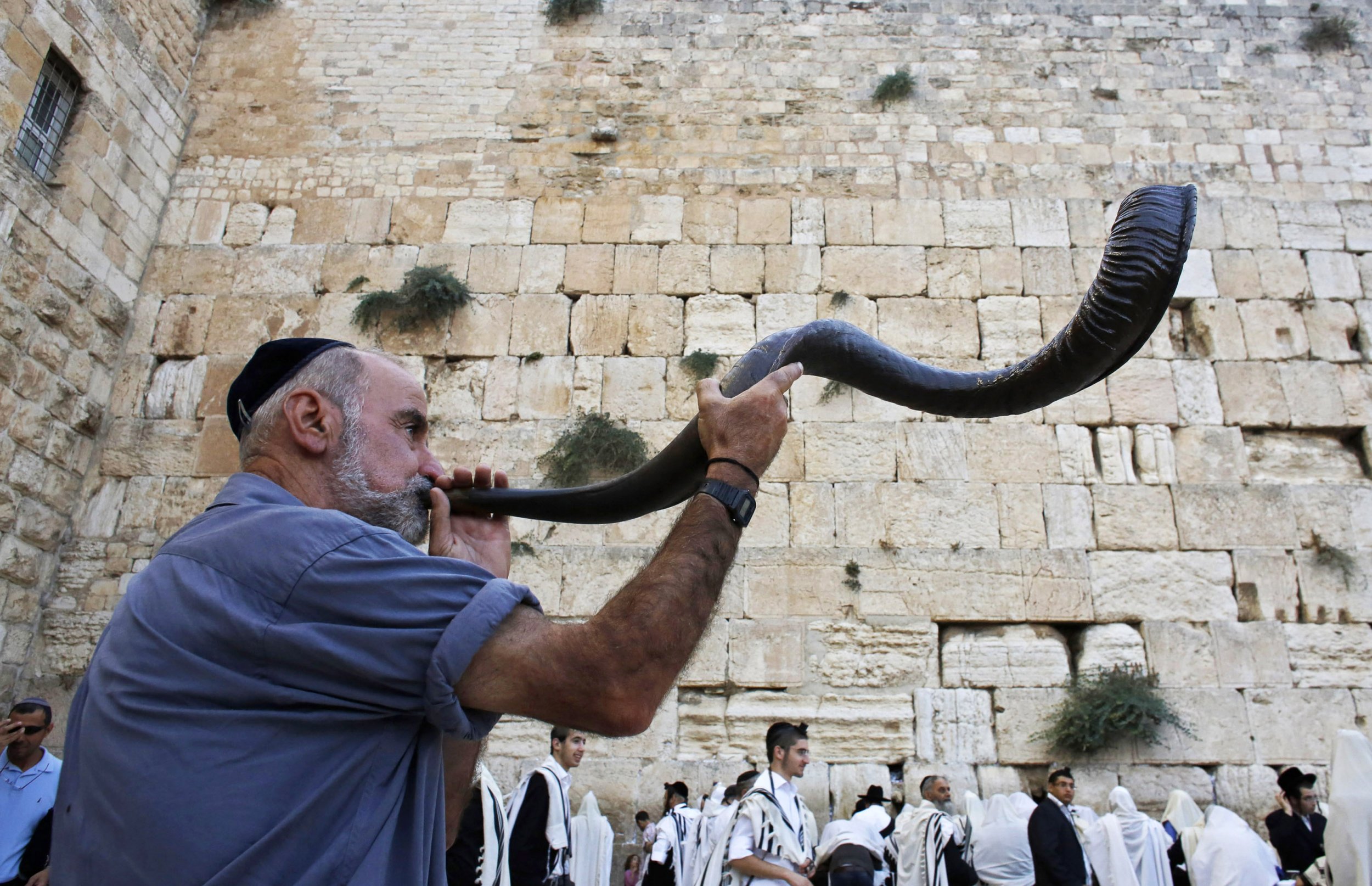
Though New Year's fireworks and celebrations are still more than three months away, the Jewish new year arrives Wednesday night. For those who are unfamiliar with Rosh Hashanah, one of the most important holidays in Judaism, here are some basic questions asked and answered.
Why is it called Rosh Hashanah?
In Hebrew rosh has many meanings, including "head" or "first" or "start," and shanah means "year," with ha simply meaning "the." In combination, the name of the holiday translates as "head of the year."
When does it start and end?
In 2017, Rosh Hashanah begins at sundown Wednesday, September 20, and ends with nightfall Friday, September 22. Technically, the holiday is September 21 and 22—the first and second days of the month Tishrei on the Jewish calendar—but in Judaism, the day begins at sundown the prior night. That's why the Sabbath every week begins at sundown Friday and continues until nightfall Saturday. So Wednesday is Erev Rosh Hashanah, or Rosh Hashanah eve, and marks the beginning of the holiday.
What year is starting on the Jewish calendar?
This year's celebration marks the start of the year 5778 on the Jewish calendar and marks the number of years since the world was created, at least according to the story recounted in Genesis, the first book of the Hebrew Bible (what Christians would call the Old Testament). The day itself is the anniversary of the day the first man and woman, Adam and Eve, were created.
Why is the exact date of Rosh Hashanah different each year?
All Jewish holidays are celebrated, unsurprisingly, according to the Jewish calendar, which does not directly match the Gregorian calendar used in the United States and in most countries around the world. In Israel, both are considered official calendars, but everyday life is conducted using the Gregorian calendar, except among those who are very religious. So while the holidays are marked on the same date every year according to the Jewish calendar, the date on the Gregorian calendar differs.
The Jewish calendar is lunisolar, or based on the cycles of the sun, around which the Earth orbits every 365 days, and the moon, which goes through a dozen waxing and waning cycles every roughly 354 days. Since a lunar month lasts about 29.53 days, each month on the Jewish calendar is either 29 or 30 days long. A regular year on the Jewish calendar, therefore, is about 11 days shorter than a full solar year. In order to fix the discrepancy and ensure that religious observances and seasons happen around the same time of year, it has its own version of a leap year. However, instead of adding one day to February, it adds a 13th month every two or three years (or precisely seven times every 19 years).
How is the holiday celebrated? What are the traditions?
The traditions of Rosh Hashanah include the sounding of the shofar, which is the horn of a ram or another animal. This often happens at a synagogue as part of prayer services. Many Jews attend longer synagogue services that include extra readings and prayers and festive meals. Throughout the High Holidays, Jews recite Selichot, special prayers that ask forgiveness. On the eve of Rosh Hashanah, families light candles in their homes, reciting the candle blessing as well as the Kiddush (a blessing over wine), and HaMotzi (a blessing over bread). It also is customary to perform a ceremony called Tashlich where Jews go to a nearby body of water and throw bread crumbs into it, symbolically casting away one's sins from the previous year.
Many of these traditions are shared among different movements in Judaism, including Reform, Conservative and Orthodox communities. However, which traditions are observed and precisely how they are observed varies from community to community and from family to family. For some secular Jewish families, the main event is the gathering of friends and family for a meal that features traditional and symbolic foods, while more observant Jews will adhere more closely to the other religious customs.
What do Jews eat on Rosh Hashanah?
The new year is marked with a slew of foods including some combination of: apples dipped in honey; honey cakes; round challah bread loaves; pomegranates; the head of a fish; dates; leeks or cabbage; swiss chard or beets; Haricots verts or green beans or black-eyed peas; and a gourd or squash.
How do you wish someone a happy new year?
You can say Shanah Tova, which translates literally as "good year," or Leshana tovah, which means "to a good year." You can also say Shanah tova u'metuka, which means "good and sweet year."
What are the High Holidays or High Holy Days?
The High Holidays begin with Rosh Hashanah and end with Yom Kippur, which this year will be observed September 30 (beginning the evening of September 29). The period between the two is sometimes referred to as the Ten Days of Repentance, because it is the time during which humanity is judged based on its deeds during the previous year as well as a time when individuals reflect and make amends.
Uncommon Knowledge
Newsweek is committed to challenging conventional wisdom and finding connections in the search for common ground.
Newsweek is committed to challenging conventional wisdom and finding connections in the search for common ground.
About the writer
Stav is a general assignment staff writer for Newsweek. She received the Newswomen's Club of New York's 2016 Martha Coman Front ... Read more
To read how Newsweek uses AI as a newsroom tool, Click here.








